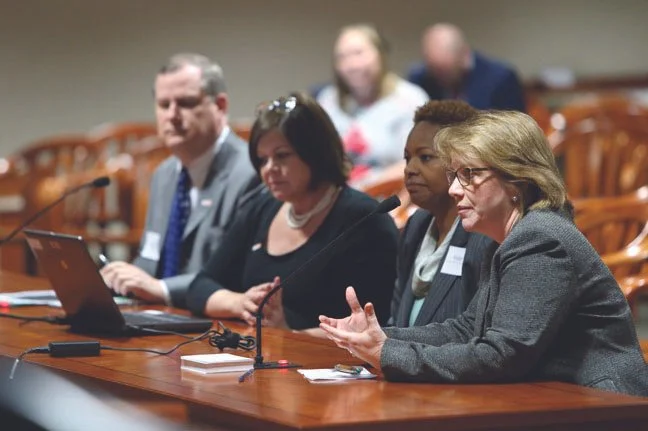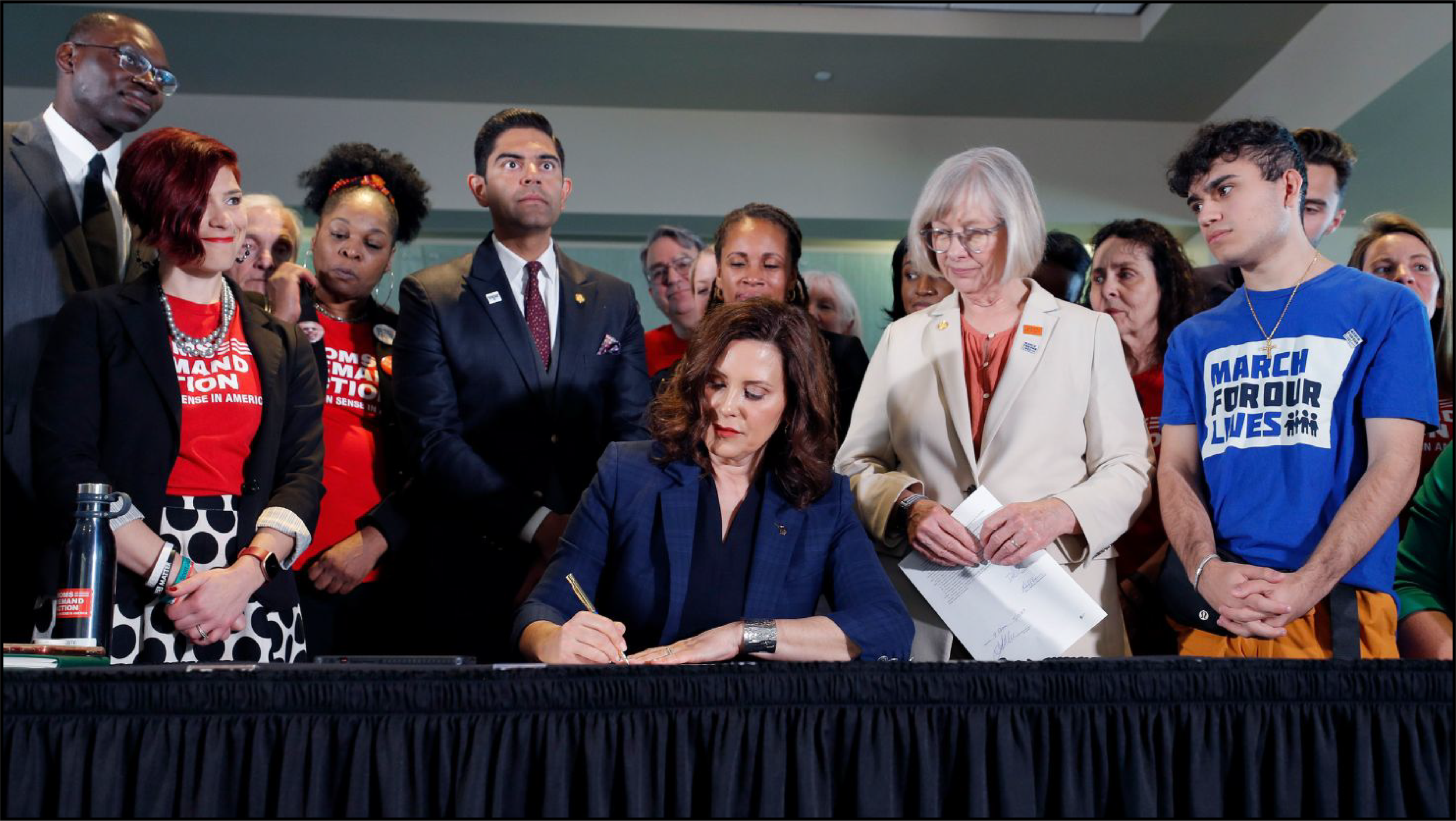Those Women from Michigan
Prior to 2018, there were
more men named Mike
serving in the State Senate than women.
2018 saw a marked increase in women running for office and winning their elections in Michigan with 53 women elected to the state Legislature.
In 2024, Michigan’s three elected executive positions, Governor, Secretary of State and Attorney General, are filled by women. Our State Senate Majority Leader and State Senate Appropriations Chair are women.
The 2024 election was a step back for women across the country.
In Michigan, however, we were able to mitigate the losses
compared to most states.
We held the open U.S. Senate seat with the election of Elissa Slotkin and the loss of Elissa Slotkin’s U.S. House seat was offset by the victory of State Senator Kristen McDonald Rivet in succeeding Congressman Dan Kildee in the U.S. House. Thus, women representation didn’t change for our congressional delegation. 2024 also resulted in gains in the Michigan Supreme Court with the election of Justices Kyra Bolden and Kimberly Thomas.
Women now fill five of the seven State Supreme Court seats, four of them are Democrats. While overall female representation didn’t change in the Michigan Legislature, Democrats lost representation while Republicans gained. These losses contributed to Democrats losing control of the State House and consequentially, losing the Democratic trifecta responsible for enacting many policy changes benefitting women and their families.
WE’VE BEEN ABLE TO ACHIEVE A LOT IN A LITTLE TIME, BUT THERE IS STILL A LONG WAY TO GO.
2026 poses a threat to keeping
women in leadership roles
in Michigan.
With women serving in critical leadership roles for policy and budget, we must regain and keep a progressive majority to continue advancing policies such as affordable childcare, paid sick leave, reproductive freedom, and eliminating the gender pay gap.
In 2026, Michigan’s Governor, Secretary of State, Attorney General,
and Senate Majority Leader –
all currently
held by women
– are termed out.
Several other key State Senators will also vacate their offices in 2027. Therefore, we have a great need for a formally organized network of women-focused organizations to support and elect future women leaders at all levels of government. This includes local races that are often overlooked for political support such as school boards, city and county commissions and township boards.















